ZANU-PF: In the absence of the big idea
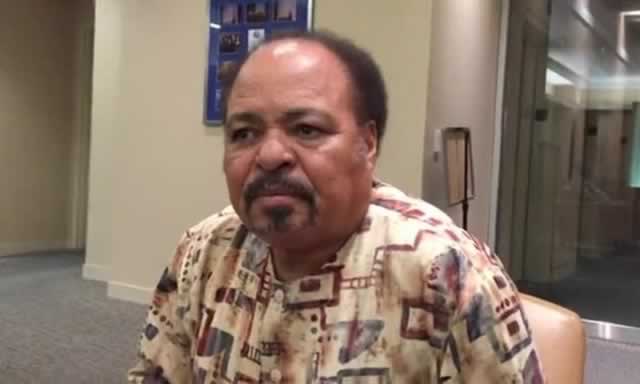
Nathaniel Manheru THE OTHER SIDE
LET me work and play with an observation by a Marxist literary critic, Walter Benjamin, who noted: “All great works of literature found a genre or dissolve one”. Elaborating this great observation, the maverick Susan Sontag added: “However rich in precursors, the truly great work must seem to break with an old order and really is a devastating if salutary move. Such a work extends the reach of art but also complicates and burdens the enterprise of art with new, self-conscious standards. It both excites and paralyses the imagination”.
Celebrating the man meant to be ousted
Zanu-PF is the party of Independence in the total sense of the word. Not only did it fight for freedom; it has governed in that freedom, and seems set to continue doing so for a very long time. Even its opponents acknowledge this fact. Recently, Stephen Chan, the British establishment watchdog on Zimbabwe, hoped through a secular prayer for some kind of divine intervention which would remove President Mugabe from the scene. But, he added, even if such an intervention were granted, it would not yield a perfect outcome, as befits the hand of God. Zanu-PF would continue to subsist persistently, even without Robert Mugabe.
And with a sense of despair, he urged his masters — the British — to find Zanu-PF and make peace with it. Equally, the outgoing US ambassador, Bruce Wharton, called President Mugabe the “lion” of Africa, pontificating about his role in the liberation politics of Africa. Much as Wharton sought to exile and confine Mugabe in politics of liberation, Mugabe’s name and shadow loomed too large for America’s wished-for perimeter. He looms large, very large, both in the phase of nationalist struggles of Africa, and in the post-colonial agenda of fighting neo-colonialism. Every outgoing American ambassador winds up paying tribute to the man they are deployed to oust. Zanu-PF is firmly entrenched; Mugabe is set to make another successful appearance in 2018, sorry Bruce. The enemies of Zanu-PF, both at home and abroad, will not be too pleased.
Behold press protocol
I had a chuckle last week when the First Lady would not go to Masvingo as pre-arranged and reported by her willy-nilly protocol officers in newsrooms. Not in Munhumutapa as the whole world would have thought. In newsrooms of NewsDay and Daily News. She, too, would not attend Prophet Magaya’s All-Night Prayer session last week, again as predicted by the same press protocol. Mai Mugabe has become a cynosure, some focal point of a hostile private press venting the anger of those who realise Zanu-PF cannot be wished away. In reality, Mai Mugabe had no business in Masvingo, or at Magaya’s great, all-night convocation. Not to lose face, the headlines of those lying papers changed: Grace bunks her own fixtures! A lying press saving its face by blaming the victim of its fulsome lies! This story summarised the frustrations which Zanu-PF serves its opponents: the degree of vituperation registers the solidity of the Party.
When it is neither
Or the rather ridiculous turn of false reportage when characters in this contrived cast by the private press do not act consistent with roles designated for them in this newsroom script. A script which splits Zanu-PF into an antagonistic binary: G-40 versus Mnangagwa! It so happens that Vice President Mnangagwa was in Manicaland, giving a lecture on matters of law. That same day, Minister Zhuwao was also in the same province, meeting the youth. So where would Provincial Minister Mandy Chimene — all along portrayed as a staunch G-40 — go, wondered the private press. Obviously to Cde Zhuwao’s meeting, they predicted. Both belong to G-40, the press reasoned. So the newsroom script said she must boycott Mnangagwa’s lecture, to attend Zhuwao’s meeting with the Youths. As events turned out, she attended neither, boycotted neither. Only obeyed a prior fixture with players in the transport sector. Headlines changed: she had boycotted own-side, all to play with touts! Another lie! Another frustration.
Crass citation and false intellectualism
Then you have vintage stuff from the Zimbabwe Independent. Holding on to a rather leaking and brittle template of seeing everything through the prism of factions, this weekly is having a bit of a problem with Zanu-PF actors who will not comport to this binary, factional template. To explain away this truculent reality which bursts the banks of its “neat”, supposedly catch-all template of factions, the Zimbabwe Independent spouted a new theory on factionalism, bedecking it with outlandish examples from place and history.
The whole thing read a bit desperate, not to say disingenuous. Unlike all other factions, Zimbabwe’s own factions have no ideology, have no value system. They are founded on personalities! From American history, the Zimbabwe Independent pilfered Alexander Hamilton and Thomas Jefferson, all in vain. From French history, the weekly pillaged Jacobinism and Girondism, again all in vain. Rather than simply admitting to reliance on a false template, the Zimbabwe Independent sought refuge in false citation and crass, pseudo-intellectualism. But it had already registered in the minds of the percipient: the template can no longer hold. It needs explanatory props!
The scholar who could have been a thinker
We always say sources are the bedrock of journalism, its soul in fact. Reading this copy on alleged factionalism in Zanu-PF, you cannot miss the desperation. The population of sources which these reports rely on remains small and static. Even efforts to augment it with ghosts does not help, does not swell its ranks. There is always Ibbotson Joseph, who is introduced as an “academic”, itself a deceptive ascription. Don’t get me wrong. I don’t for a second doubt Dr Mandaza’s intellect. Or seek to impugn his scholastic achievements, his scholarship.
He is every inch a scholar, and could have been every centimetre a bona fides social commentator. But he long repudiated that role when he jumped off the high horse of a sovereign thinker, to fall into the murky, putrid world of partisan politics. We now know him as an ex-Mavambo who left Makoni in fierce bitterness. We now know him as a minion of People First, but one who has just slid into the zone of despondency.
How you introduce a source to the reader helps or hinders interpretation. When you accost Mandaza for a comment on his political rivals, or on matters affecting and appealing to him more as a political player than a thinker, why deceptively strip him of his loud political garb which colours his views? Why project him as a neutral, disinterested commentator? Why rig a conversation, cheat the reader?
Where is he?
If it’s not Mandaza, it is Dr Pedzisai Ruhanya festooned to some placeless “Institute” kuti zviite chiremerera. Again his political connections and past is fully known to the same press. After all he comes from that same world. But all that is glossed over to commend him to the reader as a neutral seer! The same press covered him way back in the past when he had just come back from his studies in England. He had no kind words for Tsvangirai whom he accused of destroying MDC-T through his unthinking leadership bereft of any strategy. He spoke with the feeling of a stakeholder, even hoping he was the leader of intellect the MDC-T had long waited for. Why not dress him correctly, so the reader can situate his views? And anyway, where is his Institute, if that is what gives weight to his viewpoint? What is its business? Who else is in it? When was it registered with HEXCO?
Caveat emptor
If it’s not the above two, then its Eldred Masunungure, routinely introduced as “University of Zimbabwe political science lecturer”. You would think he is the only one. Or that he speaks for all political scientists in the Department. Or that his prognoses in the past have always come through; have been borne by subsequent events. And if it’s not Masunungure, it is Maxwell Saungweme.
That one is even more interesting. His press resume reads: “Afghanistan-based political analyst”! The breath of his knowledge is supposed to approximate the vastness of the physical distance between Afghanistan and Zimbabwe. Indeed to match the many alphabetic slots between A and Z! Far from disqualifying him, distance miraculously adds clarity, depth and exoticism to his viewpoints. And there is no sense of irony in relying on viewpoints of a person who daily has to read home papers on the Internet to know what is happening there. There is a clear source crisis in these reports, and the reader needs to be aware!
Late morality play
Zanu-PF has little to worry about this media-led attack on it. The media’s premises of framing the coverage of Zanu-PF around factions is daily proving a very weak adhesive vis-a-vis reality. It is proving a poor meditative proposition, rather than a descriptive rendition of a reality unfolding on the ground. A poor way of psyching the nation. And with each day that passes, another story is composed desperately to shore up and to validate this mistaken frame. Every effort makes this type of journalism more and more reified, more and more leg-less.
The story has thinned into an occurrence-free, image-free, faceless expletive where views and opinions issue from computers in newsrooms, to be posted on faceless effigies that are made to walk like beings of flesh and blood, to think and talk to us like decent interlocutors. An anyway, anytime story which does not need news gathering, occurrences or events to be written. The result is a lifeless, witless, repetitive and predictable narrative, one akin to the drift of events, to the leitmotif of a morality play. That can’t frighten or bother Zanu-PF. Only irritate it, perhaps.
When there was a big idea
But what should concern Zanu-PF, concern it profoundly, is the present anomaly where it governs without a big, filling idea. Societies are run by governments but ruled by big, dominant ideas. Zanu-PF’s history illustrates this key truism. Its struggles against imperialism at every stage paid homage to this fact. Each phase in its protracted struggle against the colonial phase of imperialism bore a name, indeed crystallised into a grabbing idea: mwana wevhu; we are our own liberators; direct confrontation; gun for gun, bullet for bullet; tambawakachenjera; people’s storm, people’s power, etc, etc. The struggle also sang these names, these big, governing ideas, sang them into mundane daily rituals and idioms which filled the heart and were pumped until they flowed into the arteries, veins and capillaries of the national body.
It was the same story after the politico-military struggle had been won: gutsaruzhinji; reconciliation, reconstruction and rehabilitation; leadership code; first and second year of national transformation (bindurazvinhu). Then a hiatus by way of the intrusive, externally-given Esap. And then back to the struggle: land; indigenisation and economic empowerment. Big, governing ideas that caught and filled the imagination of the nation. Big ideas that provoked a backlash which mobilised the Nation all the more, keeping it highly politicised and focused.
Big ideas that revealed the common enemy, a common enemy who sharpened national focus, strengthened national purpose; a common enemy who provided a good, sharp test on acceptable conduct for the citizen, who gave concrete meaning to loyalty. Big ideas which provoked sharp hostilities: EU sanctions, Zdera, Chapter 7 and many such close shaves. But hostilities which cleansed the body-politic, winnowed contents of the body-politic, putting away seed, blowing away chaff.
Vanishing zeitgeist
What is Zanu-PF’s big, filling, governing idea(s) today? I know what it is not. It is not Zim-Asset, can’t be. Zim-Asset comes from the bureaucracy; however good it may be as a plan as a tool of recovering a sanctions-battered economy, it cannot be the big political idea that enkindles this nation, sets it alight. It is staid, dry and formulaic. It is academic, an economist’s explanation to an abscess. Very esoteric, far removed from mundane comprehension. So, what is it that does the role of a big idea? Sadly, it does seem there is no such an idea. Or if it is there, it has not been communicated well enough to galvanise and mobilise the nation. To fill its imagination.
And the consequences of its absence are evident everywhere, are beginning to bear down on this society and to make Zanu-PF’s hegemony look doubtful. Now the outgoing American ambassador can address us with obvious haughtiness, even loudly reading from Zdera as if it’s our law, as if it’s a legitimate pillar of international relations. Gone is that forbidding zeitgeist which would scare away any western ambassador from naming Zdera by name, denying sanctions with a bold face.
Even UDI now mentionable
Today little boys who have no standing in their homes, let alone in the Party, have morphed into man-mountains who define national discourse and national focus. Little boys masquerading as youth leaguers or as little MPs. It is no longer the Politburo; it is now the Twitter which rules. And being a democratised platform, even stupid yells on Twitter take on the weight of pronouncements or oracles. There is a din in and around the mighty Party. Why? Every issue of a hostile paper announces a new organisation speaking in the name of the mighty Party. Youth for this and that; children of this and that? Aah! What is going on? Why so many counterfeits?
Much worse, a past of meritorious accomplishments, a defining, founding past, is being re-written. It is being re-written by out and out renegades. The Crocodile Group; Mgagao Declaration; Chifombo. Aah! Written and spoken about by charlatans born well after the war, all to live off its besmirchment, its betrayal in the present. Spit outs from sellout NGOs, now parading as key arbiters? Goodness me! Surely you cannot uphold a war whose hallowed objectives you undermine by serving structures created by a resurgent enemy of that same war, surely? Today UDI is resurrected and commemorated under various guises and various pretexts. It has ceased to be a Blackman’s taboo, an abomination in the nation’s collective psyche.
Urge to die
Above all, personalities have displaced big goals, big programmes, big ideals. Society focuses on individuals, gets polarised around this or that petty official. Today society is transfixed around fights for sinecurism, fights for positions, not visions. Even the moribund opposition begins to twitch with a whiff of new life, less from its own will to live, more from our own inexplicable urge to die, to self-immolate. There is now a boldness to challenge authority in the streets, a transposition of big visions by rehearsals of clauses of the constitution. We seem to have entered a phase of testing compliances, not of teasing out big possibilities, upsetting status quos. Challenging old politics’ creating new realities. We are judged by static constitutions, not followed by once hallowed paper now miniskirted by a society in the middle of a rapid march. Why?
The Star of David
Many reasons of course. But a key one is 2013. We took our election victory as a sealing accomplishment, an invitation to settledness. We abandoned the restlessness of a people on a quest. We rested. Some kind of post-creation sedentariness, call it post-coitus peace, sleep and snore. An endorsement of a reigning status quo which is preserved, defended by busy idleness, by a retreat into staid bureaucratic programmes, as if running a country is the same as ruling it. We cannot tackle the status quo, leaven it even, which is why the ideas which won us in 2013 today emit a stench sharper than that of a civet cat. Where is indigenisation? Where is economic empowerment? Where is employment creation? If ideas that secured 2013 are now stale, what big ideas have been invented to replace them? How do we keep the nation focused, gazing at that ever elusive but inspiring Star of David? Need we wonder that our people now think factionalism is the big idea? Or can’t reject it when Party enemies proffer it as the only reality shaping the Party, the Nation?
A society bereft of a bid idea begins to scuffle. To my mind this is what threatens Zanu-PF: what it becomes in the absence of a big, ruling idea. All great parties found politics or dissolve others. Zanu-PF is at that dangerous crossroads where it can’t found politics; even keep the politics that founded it. And because of that failure to do both, it runs the risk of failing to dissolve existing or competing politics. Hark; I hear a nightmarish, Rhodesian echo: happy 50th anniversary UDI. Who counters it?
Icho!





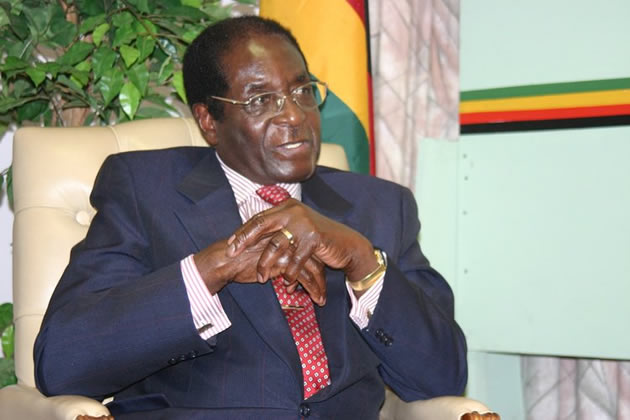
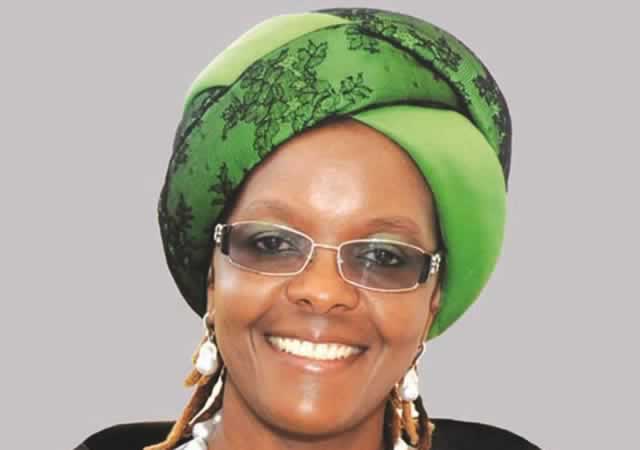
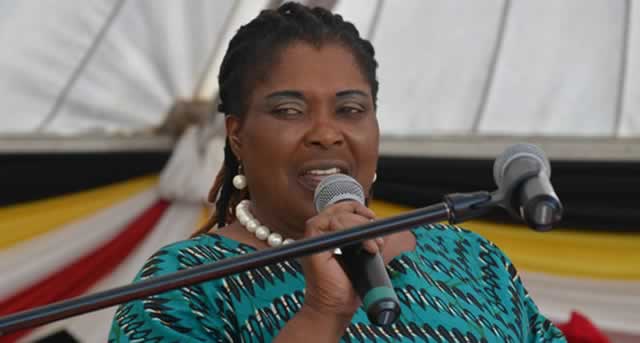
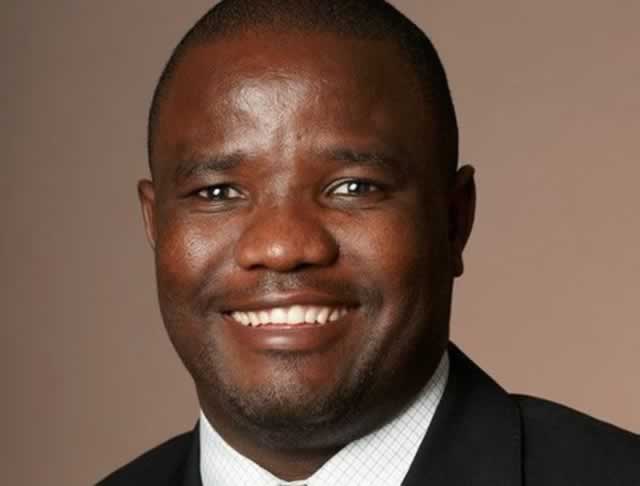
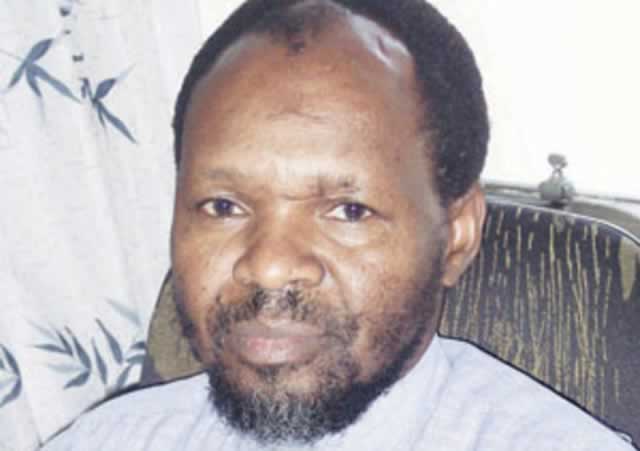
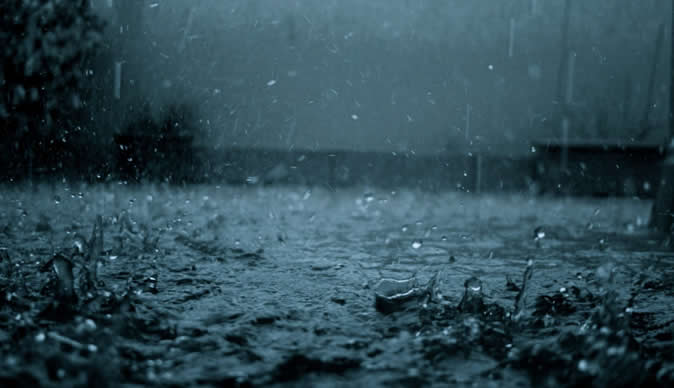
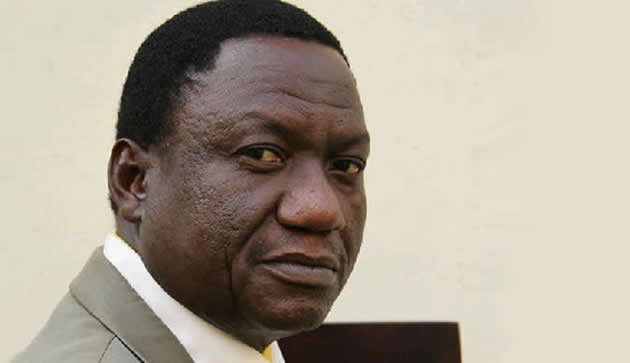




Comments